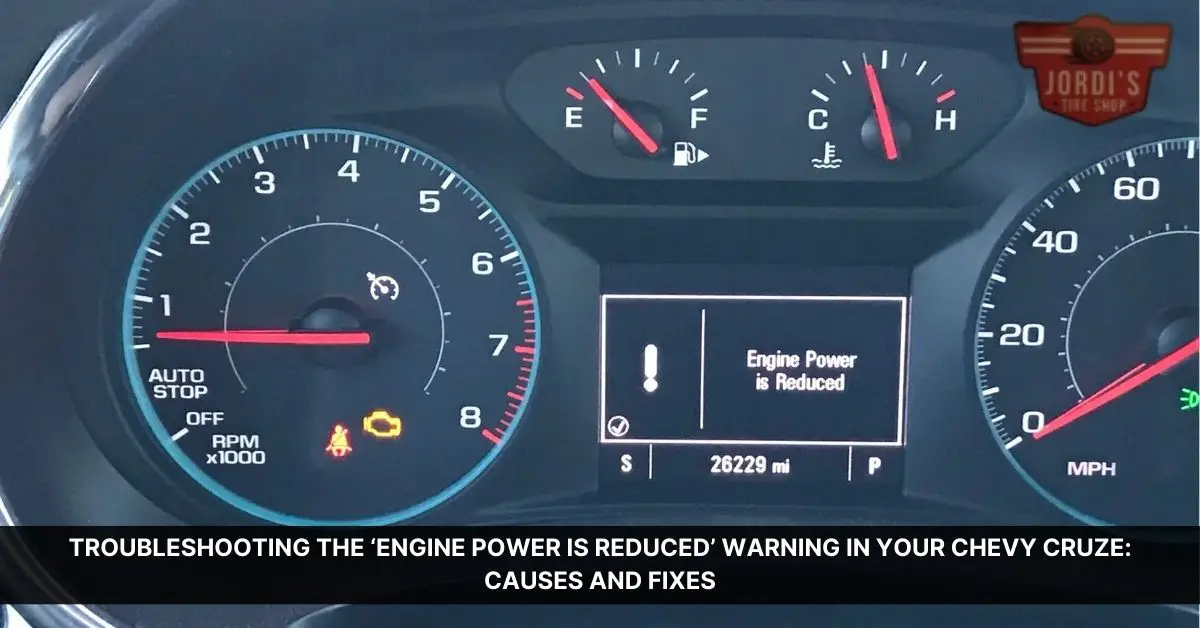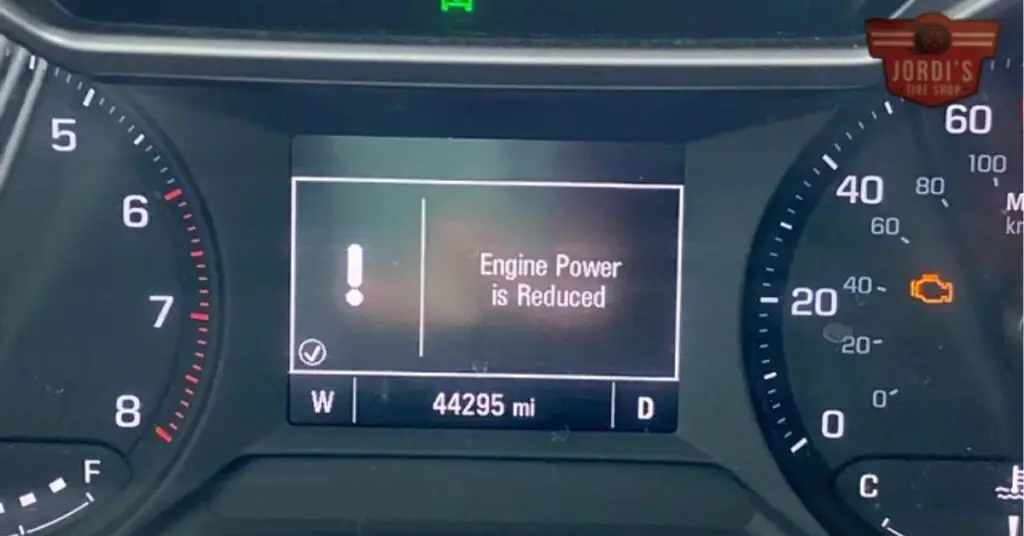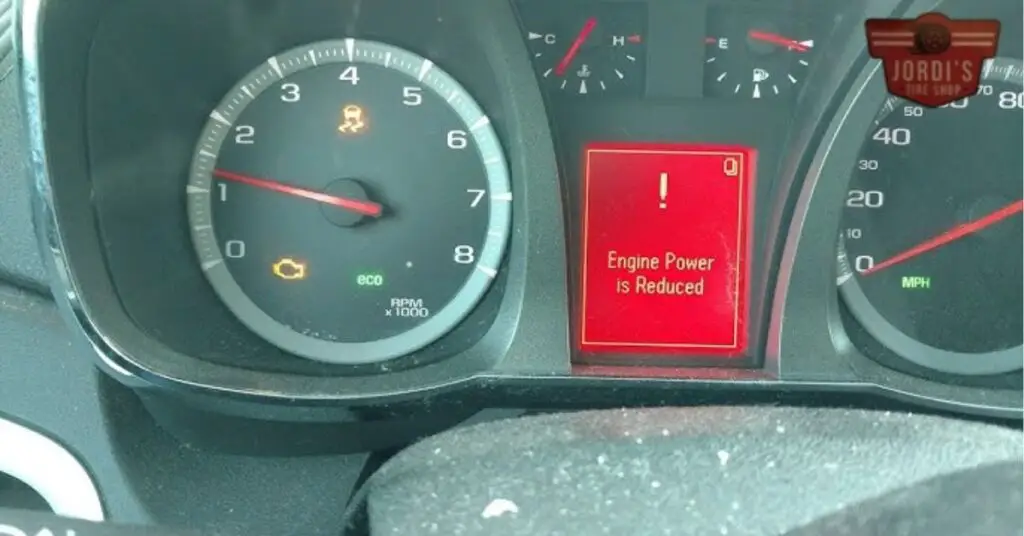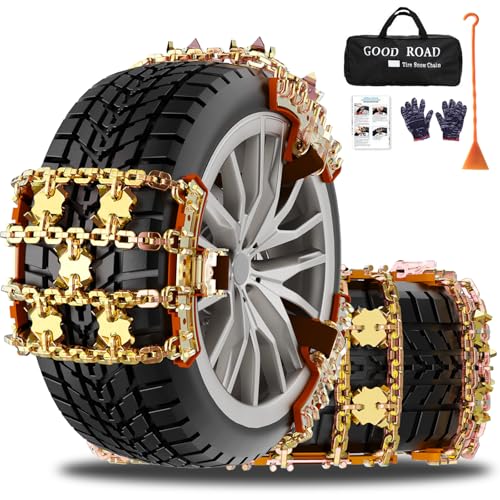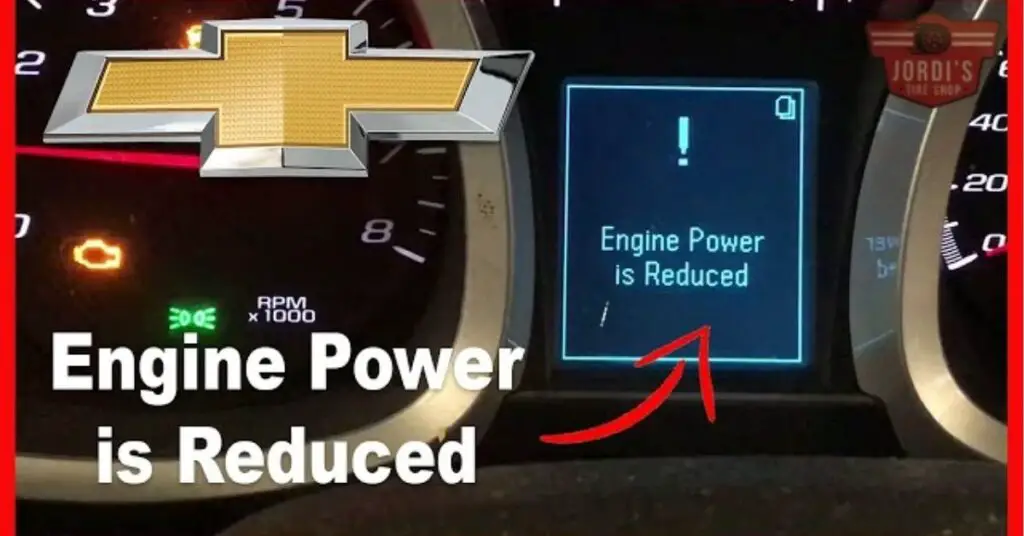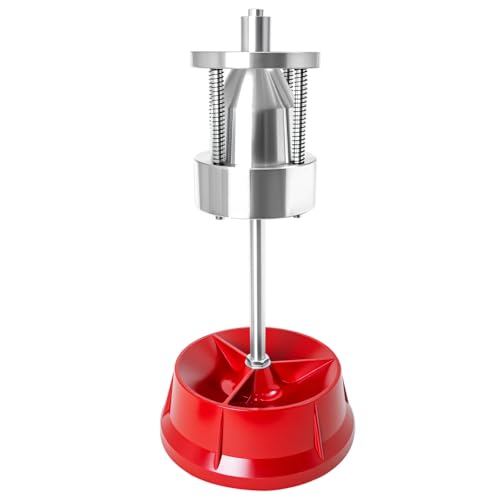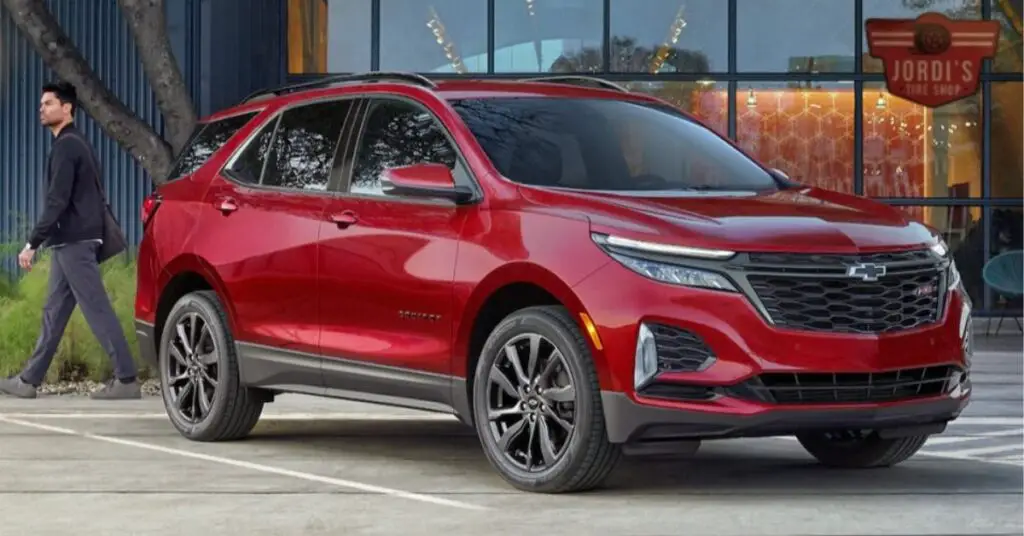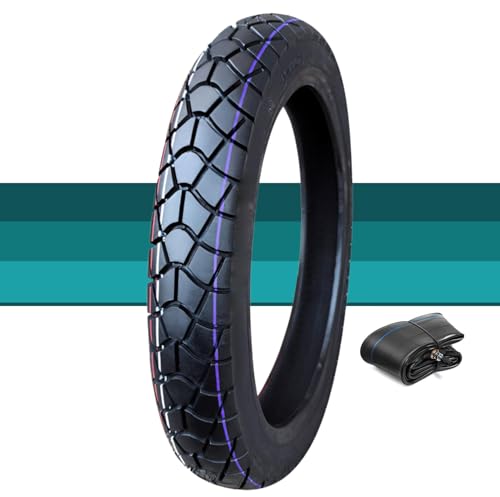Ever found yourself in a situation where your Chevy Cruze’s engine power suddenly drops? It’s a common issue that many Chevy owners face, and it can be quite a headache. This article will guide you through understanding the reasons behind this issue and how to deal with it.
We’ll investigate into the common causes behind the ‘Engine Power is Reduced’ warning, from possible sensor malfunctions to throttle body issues. We’ll also provide practical answers to get your Chevy Cruze back to its optimal performance. So, buckle up and let’s get your engine revving smoothly once again.
Chevy Cruze: Understanding “Engine Power is Reduced”
This section provides deeper insight into the “Engine Power is Reduced” warning prevalent in Chevy Cruze vehicles. It further clarifies its meaning and expounds on potential causes.
The Meaning Behind the Message
When the “Engine Power is Reduced” light illuminates on your Chevy Cruze dashboard, it’s signifying a catastrophic problem within the powertrain control system. Your car’s computer, known as the Electronic Control Module (ECM), triggers this warning when it detects issues that could potentially harm the engine’s performance and durability.
Several conditions call for the ECM to impose its fail-safe strategy, reducing engine power. It’s a mechanism employed to safeguard the engine, preventing catastrophic damage that might result from the identified problems. Understandably, this can significantly inhibit your driving experience, limiting the vehicle’s speed as well as its acceleration capacity.
Possible Causes
Many factors might trigger the “Engine Power is Reduced” warning in your Chevy Cruze. Let’s explore some of the common culprits:
- Faulty Throttle Body: A malfunctioning throttle body can interrupt the flow of air into your engine. It’s a important component that controls the amount of air entering, directly determining your engine’s power output. A defective throttle body might limit the air, hence reducing the engine power.
- Failure of Accelerator Pedal Position Sensor: This sensor communicates the accelerator pedal’s position to the ECM, facilitating effective fuel and air mixing for combustion. Should it fail, inconsistencies in fuel-air mixing occur, triggering the reduction in engine power.
- Issues with Throttle Position Sensor: It informs the ECM about the exact position of your vehicle’s throttle. If it’s faulty, it might send incorrect signals, leading the ECM to reduce engine power to protect the overall system.
The exact origins of this issue can vary considerably from one car to another. Hence, it’s crucial to run a comprehensive diagnosis to ascertain the root cause accurately. This necessary step ensures appropriate answers are deployed, restoring your vehicle’s usual performance.
Analyzing the Performance of Chevy Cruze
Considering the common issue of the ‘Engine Power is reduced’ warning in Chevy Cruze vehicles, it’s imperative to dissect the overall performance of the car. Looking at the core specifications and practical, on-road performance provides a deeper understanding of the vehicle’s capabilities.
Engine Specifications
Chevy Cruze excites with its variety of engine variants. Available in two primary engine types, a 1.4L turbo engine, and a 1.8L engine, this sedan delivers distinct experiences. The 1.4L turbocharged engine generates 138 horsepower and 148 lb-ft of torque while the regular 1.8L engine produces a slightly lower power of 138 horsepower but compensates with a higher torque of 177 lb-ft. These engines showcase the capacity of the Chevy Cruze, emphasizing its reliable performance under varying road conditions.
| Engine Type | Horsepower | Torque |
|---|---|---|
| 1.4L Turbo | 138 HP | 148 lb-ft |
| 1.8L | 138 HP | 177 lb-ft |
Road Testing
While specifications provide the initial impression, real performance unravels only during road tests. Owners have praised the Chevy Cruze’s smooth ride quality and stable handling, complementing the robust engine. Comfortable on city roads and highways alike, this sedan exhibits excellent fuel economy-benefitting long commutes. But, some drivers have reported slower accelerations, attributing it to the car’s engine ‘power reduction’ issue. Even though this obstacle, proactive maintenance and attention to early warning signs, like a lit ‘engine power is reduced’ light, help preserve its notable drive performance. It reinforces the fact that understanding and addressing potential engine issues, like sensor malfunctions or throttle body issues, can impact the overall vehicle performance immensely.
Common Issues Related to “Engine Power is Reduced” in Chevy Cruze
Let’s investigate deeper into the particulars of some common issues relating to “Engine Power is Reduced” warning in Chevy Cruze.
Throttle Body Issues
A culprit that often triggers the “Engine Power is Reduced” warning in a Chevy Cruze is a malfunctioning throttle body. The job of the throttle body is crucial, regulating the air flow into your engine, a key contributor to the balance of fuel and air needed for combustion. If your throttle body malfunctions, it throws this balance off kilter, often leading to irregular engine power.
To explain this a little more, a motorized actuator controls the throttle body. So, if there’s a defect with this actuator, it won’t adjust air levels properly, signalling the Electronic Control Module (ECM) to illuminate the warning light and reduce engine power. Some symptoms, besides the warning light, you might notice if your throttle body is at fault could be a rough or bouncing idle or even difficulty in starting your car.
Timing Control System Problems
Another potential source of the “Engine Power is Reduced” warning can be issues with the timing control system. As a critical component, the timing control system is responsible for timing the spark needed for fuel combustion in the engine’s cylinders.
If a fault within this system, whether it’s the timing belt or timing chain, the engine cannot operate efficiently, leading to a reduction in power. The ECM picks up on this disruption, later triggering the “Engine Power is Reduced” warning.
One key sign indicative of a timing control system problem is a lack of power or delayed response when you push the accelerator. You might also notice your Chevy Cruze jerking or hesitating during driving, particularly when you’re accelerating. It’s critical to address these signs early as they can escalate to more critical problems, causing potential engine damage, if ignored.
Practical Solutions for “Engine Power is Reduced” Chevy Cruze
When it comes to addressing the “Engine Power is Reduced” issue in your Chevy Cruze, a couple of practical answers exist. You can either opt for dealer service and repair or undertake certain DIY fixes to restore your vehicle’s performance.
Dealer Service and Repair
One surefire approach to resolving this problem lies in the expertise of certified Chevrolet service centers. Entrusting the car to these professionals increases the likelihood of accurate diagnoses and efficient fixes. At a certified dealer, trained technicians employ state-of-the-art diagnostic tools to inspect your vehicle’s Electronic Control Module (ECM), throttle body, accelerator pedal position sensor, and throttle position sensor. Based on the findings, they perform thorough repairs or replacements as needed using genuine Chevy parts, ensuring the issue adequately addressed.
For instance, a malfunctioning throttle body, often a prime suspect in this issue, might need thorough cleaning or outright replacement. It maintains the right air-fuel balance during combustion. If this setup falter, it could lead to uneven engine power – a key symptom of the power reduction warning. On-site technicians can swiftly address this, restoring your vehicle’s power balance and performance.
Also, a timing control system issue, like a faulty timing belt or chain, might be hindering your engine’s efficiency and causing power loss. Chevy dealers have in-depth knowledge of these systems, and with their keen diagnosis, they will swiftly repair or replace any defective part.
Hence, enlisting the help of a Chevy dealer services and repair center promises accurate problem diagnosis, effective service, and high-quality repairs, aiming to get your Cruze back on the road in its prime condition.
DIY Fixes
If you’re comfortable getting your hands dirty, you can do some checks and fixes yourself. Bear in mind that DIY methods won’t cover all the possible causes but can resolve some straightforward issues. Here, knowledge of your vehicle’s systems and safety precautions enhance success.
Start with a visual inspection of your throttle body and associated sensors. Excessive buildup may impede the throttle body’s function. In such a case, detaching and cleaning it with dedicated cleaners available in auto stores might resolve the problem.
Next, investigating the throttle position sensor and accelerator pedal position sensor, both can malfunction and prompt the ECM to reduce engine power. A noticeable delay in your gear shift or uneven engine response might indicate an issue here. Using an On-board diagnostic (OBD-II) scanner helps identify error codes, which you can look up in the vehicle manual or online to pinpoint the source.
Finally, checking the condition of your timing belt or chain becomes indispensable. A loose or worn-out belt can adversely impact your engine’s efficiency and so reduce power. Manual examination allows quick detection and prompts replacement if necessary.
Following these DIY instructions might effectively troubleshoot and rectify some core issues leading to the “Engine Power is Reduced” warning. But, for complex issues or if the problem persists, it is advisable to seek professional assistance.
Recalls and Warranty: How the Manufacturer Responds
Taking into consideration the issues surrounding the ‘Engine Power is Reduced’ warning in Chevy Cruze vehicles, it’s important to know how the manufacturer addresses these concerns. Specifically, under which circumstances the car manufacturer issues recalls and what provisions the warranty covers for owners dealing with these engine problems.
Recent Recalls Involving Engine Problems
Manufacturers instigate recall campaigns when exact vehicle models consistently exhibit important safety risks or fail to meet minimum automotive safety standards. In recent years, recalls related to Chevy Cruze vehicles majorly revolve around issues affecting the engine and braking systems.
For instance, recall actions were initiated in 2014 for the Cruze models manufactured from 2011-2012. This was brought about by an issue with a short circuit in the engine shield that potentially posed a fire hazard. But, no recall has been specifically issued for the ‘Engine Power is Reduced’ warning. Given the frequency of complaints, one might expect such a response, highlighting the importance of closely tracking any new recalls issued for Chevy Cruze models.
Provisions under Chevy’s Warranty
Chevrolet’s car warranty provides comprehensive coverage for many vehicle components. It primarily includes the New Vehicle Limited Warranty and Powertrain Limited Warranty. Valid for three years or 36,000 miles (whichever comes first), the New Vehicle Limited Warranty typically covers repairs to correct any vehicle defect, not just those related to the powertrain.
On the other hand, the Powertrain Limited Warranty remains effective for five years or 60,000 miles, covering engine, transmission, and transaxle parts. Notably, it includes the throttle body, a potentially important fact given its potential role in the ‘Engine Power is Reduced’ issue.
Yet, this limited warranty does not cover all parts of the engine. Factors like wear and tear, or damage from incorrect fuel type usage, modifying the engine control system, or lack of maintenance, can render warranty provisions null and void. Chevrolet advises owners to maintain a regular servicing schedule and to always use Genuine GM Parts for replacement to keep the warranty valid.
When experiencing the ‘Engine Power is Reduced’ warning in your Chevy Cruze, it’s advised to check with your dealer or contact Chevrolet directly to clarify warranty coverage. This approach can potentially save you time and expense in addressing the issue with professional help.
User Recommendations and Reviews on Chevy Cruze
Contemplating the user feedback about the Chevy Cruze, it’s interesting to uncover the varied experiences of drivers and their observations. It’s a blend of positive comments endorsing its features, engine performance, and design, alongside the chorus of concern raised by some over exact operational hiccups, including the ‘Engine Power is Reduced’ warning.
Positive Aspects in Reviews
A substantial portion of Chevy Cruze owners shower praises on the vehicle for its remarkable fuel efficiency. With its 1.4L turbo engine, the Cruze delivers an impressive fuel economy of up to 30 miles per gallon in city driving and up to 40 miles on the highway, a important advantage from the perspective of cost-effectiveness. Also, the sleek design and comfortable interiors have fetched the Cruze many accolades in user reviews, with many appreciating the spaciousness and plush seating arrangement.
Another highlight among positive reviews is the Cruze’s smooth ride. Even though the engine power reduction issue, a majority of users acknowledge the vehicle’s ability to deliver consistent performance and handling ease. Besides, the vehicle’s technology features, like its touch-screen infotainment system and smartphone integration capabilities, are well-received by tech-savvy users, improving the overall driving experience.
Areas of Concern from User Experiences
Even though the multiple advantages, Chevy Cruze has its share of concerns, as reflected by some user experiences. Chief among these is the ominous ‘Engine Power is Reduced’ warning—an indicator of potential powertrain issues that could cause a important drop in the vehicle’s performance. Primarily attributed to problems with the throttle body, accelerator pedal position sensor, or timing control system, this warning is a source of annoyance and worry for many owners.
Owners have also shown concern over the car’s acceleration. Some users experience a slow response, which is distressingly inconvenient, especially during highway driving. Several users also expressed disappointment with the vehicle’s overall longevity, with some noting a decrease in performance with age. This cumulative wear and tear, coupled with the timely onset of the ‘Engine Power is Reduced’ warning, suggests the emphasis Chevrolet must place on the vehicle’s long-term durability in their future models.
The reviews highlight invaluable user experiences, providing a panoramic view of the Chevy Cruze—from the lens of everyday users who know best. By addressing these concerns, the Chevy Cruze may enhance its position in the automotive space, offering better, safer, and more reliable rides to its devoted fanbase.
Conclusion
So, you’ve now got a solid understanding of the ‘Engine Power is Reduced’ warning in your Chevy Cruze. It’s clear that sensor malfunctions, throttle body issues, and timing control system problems can all lead to this frustrating scenario. But remember, it’s crucial to carry out a comprehensive diagnosis to pinpoint the root cause and carry out the right fix. While DIY fixes might work for some, don’t hesitate to seek professional help for complex issues.
You’ve also learned about the Chevy Cruze’s overall performance and engine specifications. Even though its smooth ride and impressive fuel economy, the engine power reduction issue can affect acceleration. Hence, proactive maintenance is key to keeping your Cruze running smoothly.
Finally, don’t overlook Chevrolet’s recall and warranty provisions. While there’s no exact recall for this issue, it’s always a smart move to stay updated on new recalls and understand your warranty coverage. Your Chevy Cruze is a important investment, and it’s vital to take care of it to ensure its longevity and performance.
1. What could cause the ‘Engine Power is Reduced’ warning in Chevy Cruze vehicles?
The ‘Engine Power is Reduced’ warning might be a result of sensor malfunctions, throttle body issues, or problems related to the throttle position sensor. These malfunctions trigger the Electronic Control Module (ECM) to reduce engine power as a protective measure against potential damage.
2. How does the overall performance of Chevy Cruze look like?
Chevy Cruze offers a smooth ride and excellent fuel economy with two engines: a 1.4L turbo engine and a 1.8L engine, both producing 138 horsepower. However, slower acceleration may occur due to engine power reduction issues.
3. Which common issues are related to the ‘Engine Power is Reduced’ warning?
Common issues related to this warning include a malfunctioning throttle body that disrupts the air-fuel balance, resulting in irregular engine power, and issues within the timing control system, like a faulty timing belt, which hinders engine efficiency.
4. What are some solutions recommended to address the ‘Engine Power is Reduced’ warning?
Solutions include getting help from certified Chevrolet service centers for accurate diagnosis and repairs, using an OBD-II scanner for DIY problem identification, and checking the condition of the throttle body and sensors. In general, professional help is advised for more complex issues.
5. What is Chevrolet’s response to the ‘Engine Power is Reduced’ warning?
While there have been recalls for certain issues, no specific recall has been issued for this warning. Chevrolet provides warranty coverage such as the New Vehicle Limited Warranty and Powertrain Limited Warranty that includes components like the throttle body.
6. How is the Chevy Cruze ratings and feedback from users?
The Chevy Cruze receives mixed feedback from users. Owners appreciate its fuel efficiency, sleek design, and smooth ride, along with its technology features. However, concerns over the ‘Engine Power is Reduced’ warning and slow acceleration have been noted.
Related Posts:
- FCW System Failure: Causes, Implications & How to Troubleshoot
- Understand and Combat ‘Steering Assist Reduced’: A Comprehensive Guide for Safer Driving
- Unlocking the Power of Service Driver Assist Systems: A Revolution in Auto Technology
- Mastering Audi Drive System Malfunctions: Causes, Diagnostics, and Solutions
- Decoding the ACC FCW Limited Functionality Warning: Crucial Insights for Safe Driving
- Decoding and Resolving the ‘ACC FCW Unavailable Service Required’ Warning in Your Jeep
- Mastering the Forward Emergency Braking Light in Your Nissan Rogue: A Safety Game-Changer
- Decoding the ‘Active Lane Management Unavailable – Service Required’ Alert: Your Guide to Safer Driving
- Demystifying Audi Stabilization Control Fault: Causes, Diagnostics, and Fixes
- Troubleshooting the ‘Engine Power is Reduced’ Warning in Your Chevy Cruze: Causes and Fixes

